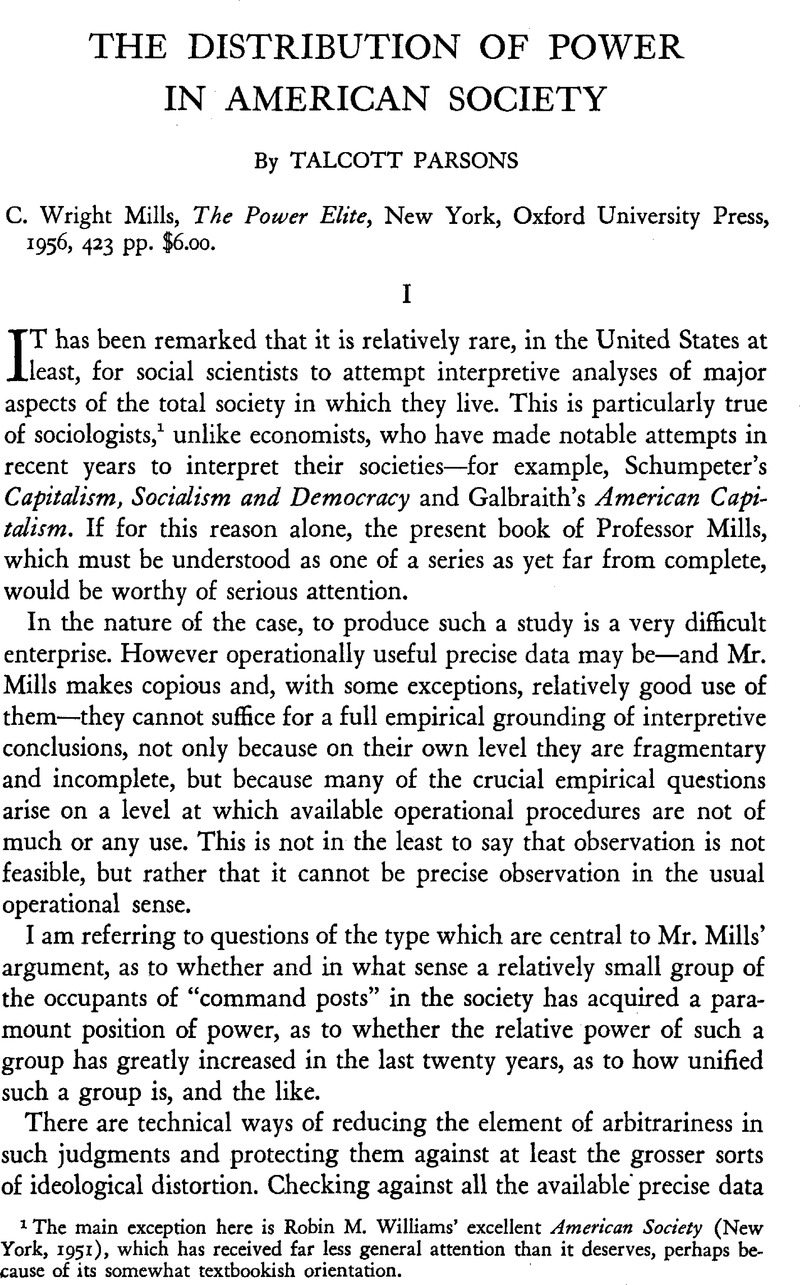Published online by Cambridge University Press: 18 July 2011

1 The main exception here is Williams', Robin M. excellent American Society (New York, 1951)Google Scholar, which has received far less general attention than it deserves, perhaps because of its somewhat textbookish orientation.
2 Mr. Mills is clearly writing only partly for an audience of technical social scientists. Though my own argument will be largely based on considerations of technical theory, I shall not introduce explicit justification of my theoretical judgments into this review, but will try to state my case in relatively non-technical terms.
3 How far this “Jeffersonianism” thus represents the moral position from which Mills launches his indictment is a question I will discuss at the end of the article. It provides a convenient reference point in terms of contrast both for Mills' characterization of the current society and for my own very different one.
4 Cf. Sutton, F. X., et al., The American Business Creed (Cambridge, Mass., 1956)CrossRefGoogle Scholar, for an excellent analysis of the point of view of business toward its relations to government. The authors make it clear that the present state of affairs is far from being fully accepted in business circles even now.
5 Somewhat curiously, though tending to suggest that President Eisenhower's elevation to the presidency is symptomatic of the alliance between the “warlords” and me upper business group, Mills does not even mention Adlai Stevenson as a significant figure in the American political scene. To be sure, his book appeared before Stevenson's second nomination. But where does Stevenson fit?
6 Whatever may be thought of it in other respects, Mr. Dulles' reluctance to join Britain and France in military measures against Egypt was hardly an expression of the “military metaphysic” now allegedly dominating the government.
7 Good examples are the Department of Agriculture and the Reclamation Service of the Department of the Interior—and now, increasingly, die Public Health Service. I think that this is even true of the Foreign Service, and that Mills here, as in so many other connections, seriously exaggerates the probable long-run consequences of the McCarthyites' intervention in the affairs of the State Department.
8 I think it correct to say that five years of Labour government in Britain, far from lessening the prominence of Oxford and Cambridge educations as qualifications for the civil service, in fact increased their relative importance, by increasing the national importance of the civil service itself.
9 Cf. Sutton, et al., op. cit.